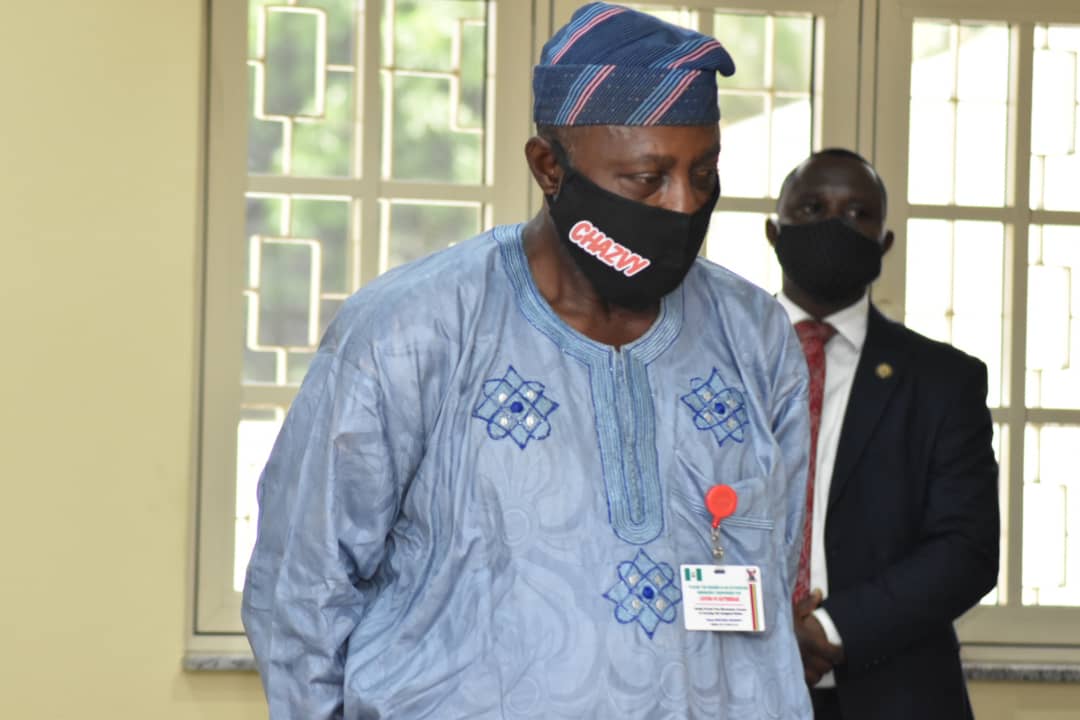Virologist is Decoding COVID-19 Strain Tied to Nigeria Spike
ADF STAFF
As the world celebrated news of several COVID-19 vaccines in the final weeks of 2020, Nigeria saw a sudden increase in infections. Virologist Sunday Omilabu believes a new strain of the virus is at work in Africa’s most-populous country.
“In the last two months, we’ve been noticing that the surge is moving gradually,” Omilabu, director of the Centre for Human and Zoonotic Virology at Lagos University College of Medicine and Teaching Hospital, told Nigeria’s Arise News. “From the last two weeks in November to this point in time, we’ve noticed that we now have a lot of people coming down. We know there must be a variant actually responsible for this.”
In his weekly media briefing on December 24, Dr. John Nkengasong, director of the Africa Centres for Disease Control and Prevention (Africa CDC), reported that Nigeria had seen a 52% increase in COVID-19 cases and a 63% jump in deaths over the preceding four weeks.
Initial research indicates the Nigerian variant, known as 501.V2, is different from the one that turned up in South Africa, he said.
“What is absolutely clear is they transmit quickly, and they account for a large number of people that are infected,” Nkengasong said.
It’s not clear whether the variants make people sicker than the original version of the disease, he said.
The new strain in Nigeria appeared as the continent experienced a sharp increase in COVID-19 cases. The second wave has coincided with relaxed travel restrictions and fewer people adhering to precautions such as masks, social distancing and hand-washing.
The Africa CDC reported 3 million cases shortly after 2021 began, meaning the caseload has tripled since August. As of mid-January, Nigeria had reported more than 101,300 cases and 1,360 deaths.
Omilabu is leading the effort to decode the Nigerian strain to determine how the virus has changed. He previously worked on sequencing the genome for Ebola and Lassa fever. He said the new strain appears to be more infectious than the original COVID-19 variant, letting one person infect four to five people — about double the rate of the original virus.
“We are trying to sequence a number of isolates in Lagos State,” Omilabu told Arise News. “Once we have the results, we will share them with the scientific community and the world at large.”
Omilabu said variants like the one turning up in Nigeria occur as the COVID-19 virus replicates its way through a population.
“All RNA viruses, when they duplicate, they mutate,” Omilabu said. “So, there are bound to be variants following replication cycles. It’s not a new thing. As we have the virus going through various hosts, its proteins will change.”
As a result, it’s important to monitor the virus over time, to track mutations and respond to them as they arise, he said.
Nkengasong is confident the vaccines currently being developed will continue to work because the variant is still largely the same as the original virus.
“Which means the measures we’ve been using to fight COVID-19 should apply,” he said. “We cannot panic. Let’s let science continue to drive our response.”
Omilabu recommends Nigerians avoid the virus entirely by following precautions such as masks and social distancing. By preventing the spread of the virus, Nigerians will create fewer opportunities for it to change into new strains.
“People need to cultivate that habit of running away from the virus,” he said.


Comments are closed.